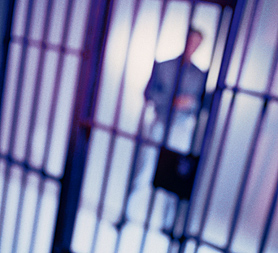Prisoner given permission to father baby behind bars
Justice Minister Ken Clarke has ordered a review into the case of a prisoner who was granted permission to artificially inseminate his partner while serving his sentence.
Justice Secretary Ken Clarke has come under fire for the controversial revelation but has denied authorising the decision to give the unnamed man permission to father a baby, and has launched a review of the issue.
The news emerged following information released under the Freedom of Information Act.
The Ministry of Justice has said it would not provide any funding for the procedure. However, it is not clear if the taxpayer would foot the bill as the Department of Health said it could not rule out the state paying for decisions made by local primary care trusts.
Government officials had initially suggested that the go-ahead for artificial insemination of a criminal’s partner required the “reasoned” approval of the Secretary of State.

A review has now been ordered of the decision which the Prime Minister’s official spokesman said had “not been dealt with in the way it should have been”.
“I have never personally authorised a request of this kind nor heard of the case until this morning,” Mr Clarke said.
“I am asking for the circumstances to be investigated and reported back to me.
The public are sick to the back teeth of the human rights of criminals being put before the rights of decent law-abiding people, victims and taxpayers. Philip Davies MP
Four years ago the European Court of Human Rights ruled that Britain had to allow access to the treatment, because of the “right to family life”.
It is understood that no permissions have been granted since then and sixteen applications have been rejected.
Conservative MP Philip Davies said: “The public are sick to the back teeth of the human rights of criminals being put before the rights of decent law-abiding people, victims and taxpayers.
“What’s the point of locking people up if this pseudo-court, with the help of Ken Clarke, is going to give them all their rights back?”
A Ministry of Justice (MOJ) spokesman said prisoners had been able to apply for artificial insemination while behind bars since 1965 and the process was not based on the Human Rights Act.
“Each case is considered on its merits,” he said in a later statement which left off the previous reference to it being a decision for Mr Clarke personally.
“The Secretary of State will review the issues raised in due course, in order to provide guidance and clarity for future cases of this kind.”